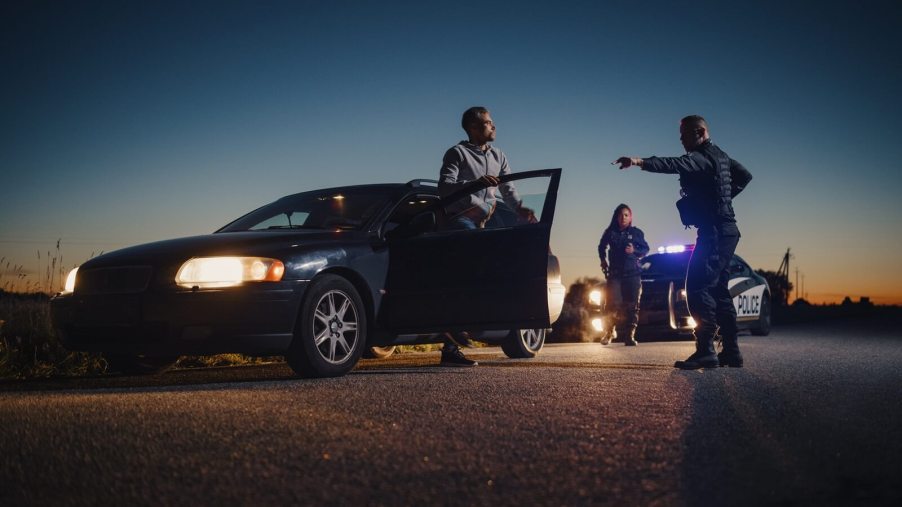
4 Things a Police Officer Can’t Do at a Traffic Stop
Police officers pull over tens of thousands of American motorists every day. More often than not, these stops result in tickets and warnings. However, and tragically so, there are traffic stops that result in violations of rights, misunderstandings, violence, or worse. Consequently, the best thing a driver can do after being pulled over is remain calm, follow the instructions of police officers, and know your rights. That said, a law enforcement officer shouldn’t perform specific tasks at a typical traffic stop without appropriate circumstances.
A police officer can’t do any of these things without legal documentation or specific circumstances during a traffic stop
Getting pulled over by a police officer is frustrating and, in certain circumstances, has potential safety concerns. Depending on your state and local laws, a police officer may not do the following unless they have a warrant, are placing you under arrest, or have probable cause connecting you to a crime:
- Confiscate your phone or recording equipment
- Search your vehicle
- Stop you without a valid reason
- Force you to converse or self-incriminate
The American Civil Liberties Union (ACLU) makes a point of informing Americans of their rights. As such, the human rights organization reminds drivers and pedestrians that police officers cannot confiscate their phones or recording equipment without a warrant.

It might seem like an instigation during a traffic stop, but you have the right to refuse the request for a vehicle search without a warrant. If you don’t want to submit to the request for a search, calmly ask if the officer has a warrant. If the officer has probable cause linking you to a crime or criminal activity, they can search your vehicle. But if they don’t have a warrant or probable cause, they cannot legally search your vehicle.
Ok, so most motorists stop when they see the “cherries and berries” in their mirrors. That’s just good sense, especially if you have nothing to hide. Frankly, refusing to stop is itself a crime and will result in backup units and an intensification of the situation. However, a police officer isn’t allowed to stop you without a valid reason. Moreover, most departments require their officers to tell you why they stopped you immediately after pulling you over.
Finally, beyond complying with a police officer’s lawful commands, an officer can’t require you to talk to them. Moreover, anything you do disclose after being pulled over can incriminate you in other crimes. An officer can’t require you to self-incriminate.
Source: ACLU, Courier Journal



